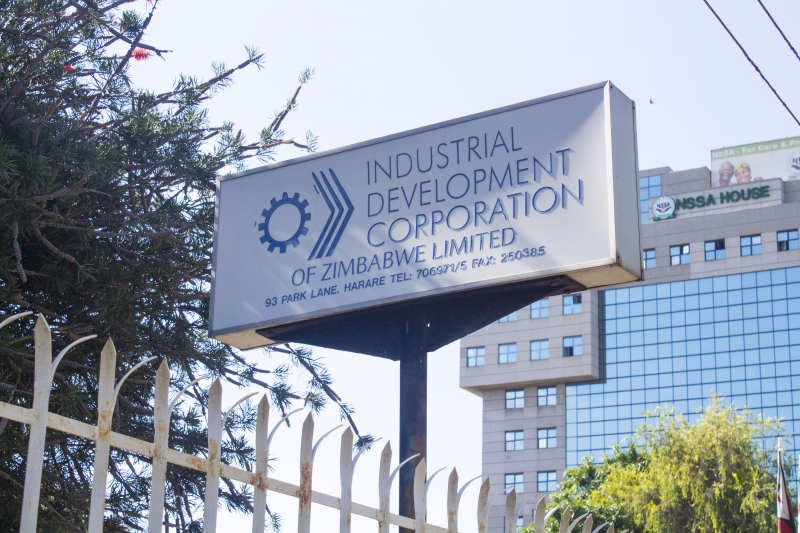Government implored to expedite IDC funding
Government has been implored to expedite the process of making the Industrial Development Corporation (IDC) functional as a development finance institution to provide long-term funding which has been a major constraint for business.
The positioning of IDC as a solution to industry financing needs has been appearing in the National Budget since 2019 when the first national budget for the implementation of the Transitional Stabilisation Programme (TSP) was announced.
However, actioning this has taken too long.
Industry and experts who spoke to Business Weekly concurred that it is important for the 2023 National Budget to identify sticking issues so that the manufacturing industry can begin to benefit.
“Our key recommendation is to make IDC functional as a development finance institution by the end of June 2023,” the Confederation of Zimbabwe Industries (CZI) said in its budget submissions.
Government and several business organisations have since conducted budget consultations and submitted to the Ministry of Finance and Economic Development for consideration.
The 2022 budget set aside $2,3 billion for provision of medium and long-term finance to enable companies across the agricultural, mining and service sectors to implement value-addition activities.
CZI said it has already identified value chains that the government has been highlighting including the need to promote industrialisation through strengthening value chains which utilise local raw materials to strengthen synergies among sectors, especially the agriculture sector with manufacturing for inclusive growth.
However, funding for these initiatives has been hampered by lack of long-term financing.
CZI also indicated that the desire that the government has to ensure that Zimbabwe develops an ecosystem for venture capital financing to thrive, which is quite evident from the previous budget statements also goes back all the way to 2019.
The process has since culminated in the setting up of the National Venture Capital Fund under the 2020 National Budget.
“CZI hopes that in 2023 the Fund will become fully operational and CZI underlines its commitment to collaborating with the Ministry so as to promote the emergence and funding of new and innovation-driven industries through the National Venture Capital Fund,” it said.
Economist Prosper Chitambara said if IDC is capitalised it will be able to assist with long-term financing considering it is one of the key constraints affecting industry.
“Lack of access to development finance has been a huge impediment. So the capitalisation of IDC will provide that patient finance at better rates than what commercial banks are offering and will address one of the greatest constraints that has been bedeviling industry,” he said.
He said the process needs to be expedited, putting in place the right legal and institutional framework to actualise that important imperative.
Mr Chitambara noted that the Government needs to be innovative in terms of funding given the limited options, especially that industry cannot borrow at concessionary rates.
“We know the Government has put in place measures to address that such as the value for money on Government payments. We hope this will go a long way to address public spending,” he said.
He added that more can be done on that basis and create an environment that is conducive for businesses to grow.
Mr Chitambara said Government’s intention to launch a Diaspora Bond though it will increase the country’s indebtedness, will go a long way to provide funding for critical infrastructure.
Zimbabwe National Chamber of Commerce (ZNCC) president Mr Mike Kamungeremu said if IDC is capitalised, it can take care of industry’s financial needs, especially for retooling.
“Equipment that is within industry is aged with some of it installed during the period of the liberation struggle, therefore we would welcome the restructuring of IDC as it will be useful for industry,” he said.
Mr Kamungeremu however noted that private players should also take an active role in capitalising IDC.
“At times we have heard of budget allocations which were never allocated hence it could be probably why IDC has not yet been capitalised.
“Once the money is allocated, the modalities put in place, there is need for industry to make a follow-up and utilise the funds and retool,” he said.
Development analyst Mr Clemence Machadu said the issue of supporting the IDC is moving at a slow pace which does not commensurate with the need to revive the industries and to create new products that are competitive.
“IDC can play a role in quenching the strong funding thirst that is grappling with our local manufacturing sector. Equally, there should be measures in place to ensure that the IDC itself is adequately funded and to improve its ability to attract lines of credit,” he said.
He added that the entity should also be rebranded as it is recalibrated, informed by the needs of the industry.
“Seeing how this entity was removed from sanctions about half a decade ago, there is now a need to create a new image of the entity to enhance its appeal to foreign funders,” he said.
Mr Machadu said the Treasury should spell out concrete measures that improve the business environment and make it attractive for investment in the sector.
He said given the country’s resource abundance, there is capacity to attract a lot of foreign investment which will also reduce the burden of the government having to provide funding.
ZNCC in its pre-budget submissions said there is need for the Government to provide a tax relief for business as the wider economy recovers from the pandemic.
ZNCC said when the 2 percent Intermediate Money Transfer Tax (IMTT) was introduced, the spirit of the tax was to bring into taxation the informal sector which was not being taxed. “What it has done, however, is to overly tax the formal taxpayers,” it said.
The Chamber said the Government should allow IMTT to be tax deductible and its application has to be different between businesses and consumers.
The Chamber said given the recent policy announcement that the multi-currency regime will be in effect during the entire duration of the NDS1 the Ministry of Finance and Economic Development should review the IMTT on foreign currency, from 4 percent to 2 percent.
ZNCC said on a policy level, the high-interest rates are making the funding of business operations and new investments unviable.-ebusinessweekly











